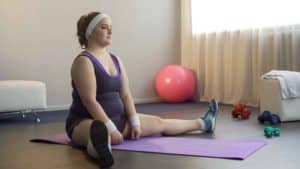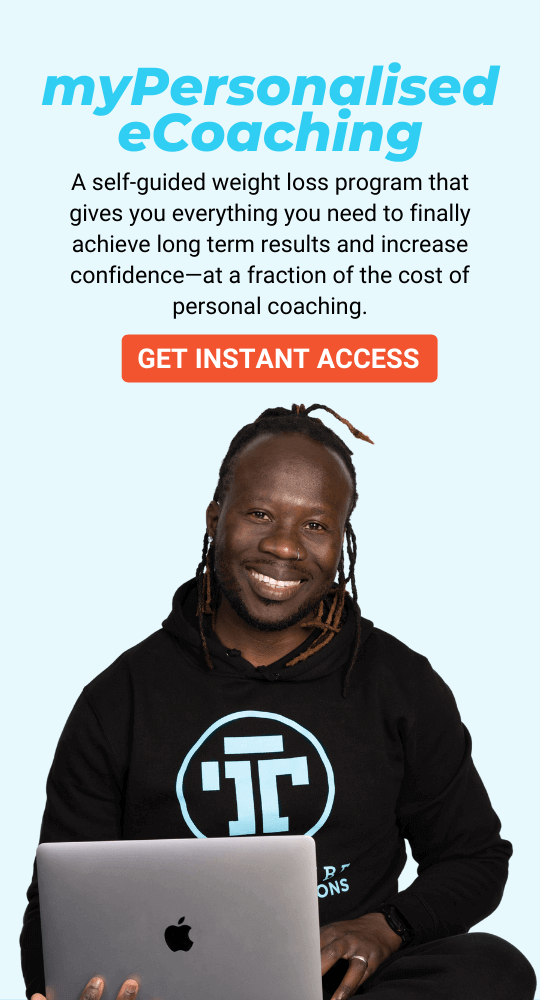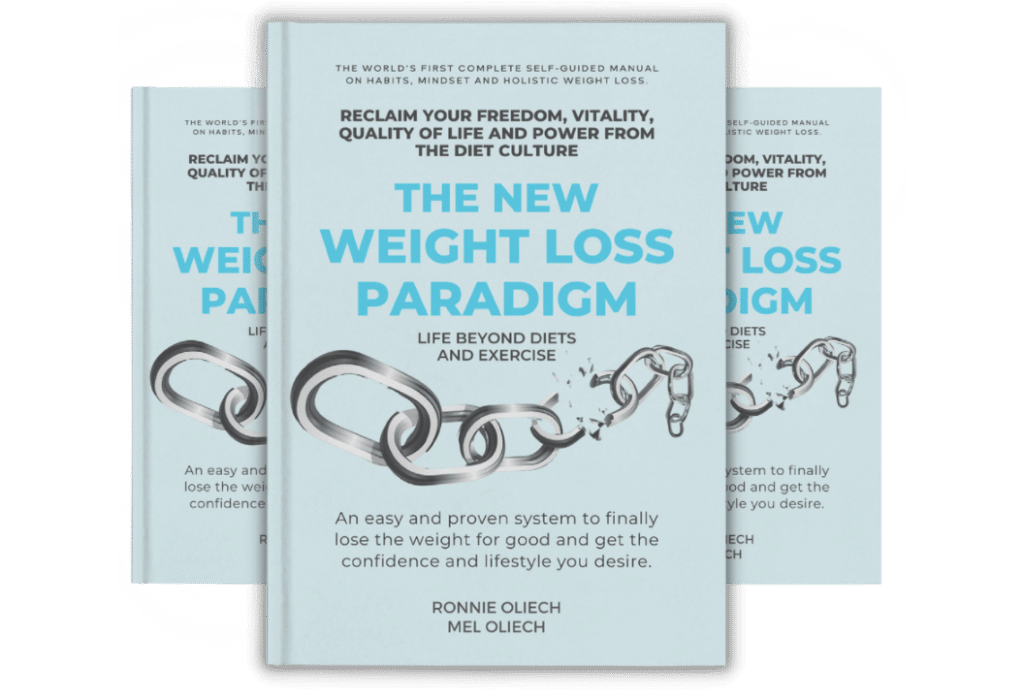Almost everything about coronavirus is outside our control.
We have no vaccine against the virus, which has killed over 145,000 people (at the time of writing). We still don’t know everything about the virus and why some people are more susceptible than others. In a bid to slow down infection rates and ‘flatten the curve’, we’ve been socially distancing for some weeks now.
Our regular activities have ground to a halt. If you still have a job — many have lost theirs — you’re probably working from home, while your children are going to school from home. That is, unless you’re considered to be an ‘essential worker’. In which case, you’re heading to work under what some would consider ‘risky’ circumstances.
Many of us are wondering how long our lockdowns will last, how long we’ll have to keep homeschooling, and when our lives can go back to normal. Amidst it all, there are some who are well and truly freaking out — worrying about loved ones, worrying about employment, worrying about finances, and worrying about everything else in between.
And it’s because they don’t feel like they’re in control any more.
Why we control
As human beings, we have a deep need to feel in control. We believe that being in control keeps us safe, causes us not to worry about things, helps us predict the future, and protects us from something bad happening to us.
People who need to feel in control are often afraid of being at the mercy of other people or a situation, and therefore may develop systems and rules regarding their daily routine, in an effort to feel they have everything under control.
The need to feel in control is closely linked to low confidence and self-esteem, perfectionism, lack of trust, fear, and people-pleasing.
What happens when you feel out of control?
When you feel out of control, you feel stressed and afraid. You may also:
- Overthink and dramatise the situation, often dwelling on the worst-case scenario
- Try to control other areas of your life — e.g. what you kids do and say, what you post on social media, etc.
- Try to control other people in your life — e.g. what they do, where they go, what they buy
- Feel angry and lash out at others
- Feel worthless and useless because you can’t control everything
- Feel helpless and powerless
- Blame others for your current situation
- Worry incessantly
- Find it hard to focus on your work
- Think of multiple plans to help you deal with the situation
- Make up stories in your head about what is happening and how it affects you
- Emotionally eat or binge eat
- Drink alcohol to help calm you
- Find it hard to delegate to others
- Control and restrict your food
- Have difficulty sleeping.
Why you’re freaking out
The truth is that no one is ever in control 100% of the time. No one. There is always going to be some kind of uncertainty in your life. But feeling uncertain makes many people feel scared. When you feel scared, you live a fear-based life, and make decisions based on your emotions. Any decision that you make that’s based on your emotions is never going to be a one, so you end up doing things that will only make your situation worse.
Living in fear sabotages your weight loss efforts more than you realise. It causes stress, and leads you to engage in many sabotaging behaviours such as drinking, bingeing, emotionally eating, hanging around with toxic people and having pity parties.
Living in fear happens when you focus in the past or in the future instead of the NOW.
Fear from living in the past
All of us have things from our past that were difficult to get through. However, some people let their past dictate their present. For example, they remember something that happened previously that didn’t go well, or didn’t have a good outcome, and are afraid that it will happen again. So they act out of fear that it will happen again.
For example, Bill lost his job during the Global Financial Crisis of 2007 and ended up having to sell his house and down-size to make ends meet. It was an extremely difficult time and ended up costing him his marriage. Afterwards, he decided to go into business for himself, so he would have more control over his financial future. Bill is now deeply afraid of the economic fallout from the coronavirus pandemic. He has recently remarried and his business is in jeopardy. He’s now very worried about going into debt again and having his second marriage crumble under the pressure. As a way to cope, he’s drinking more and his drinking is starting mid-afternoon, now that he’s working from home. He is also trying to control how much his wife is spending on groceries. He and his wife now spend their days bickering and arguing with each other over his drinking and his controlling ways.
Living in the future
We can also feel afraid and out of control when we think about the future. Because the future isn’t guaranteed, many people worry about what might happen, often focusing on the worst-case scenario.
For example, Grace has a son who is in year 12. He has been on track to get a good score and get into the university course of his choice. Now, with social distancing measures, he’s learning from home. Grace is now very anxious about how her son will learn outside of the classroom environment and wants to know what the teachers are doing to support her son. Most days, she sends emails to her son’s teachers, to find out what work he’s supposed to be doing at home, and then follows up with her son. She constantly nags him about his schoolwork and checks up on him at the end of each day (and sometimes during the day) about what he’s got done. She and her son argue most days about his study, and her son is finding it hard to keep up with his work and is becoming disengaged. Grace begins panicking about what that means for his final year of school and whether he will get into the course he wants to. She’s now spending time researching other tertiary options for him, in case he doesn’t get his first preference. Her son interprets this as her not trusting in him or believing he’s smart enough, and this causes even more arguments. On top of feeling stressed, Grace feels extremely angry with the teachers, and the government, for moving to online learning and thinks that if her son doesn’t do well in Year 12, it will be all their fault.
The beauty of NOW
As much as we want to run from the past, or control the future, we can’t.
The past has already happened. There is nothing you can do about what has happened, except learn from it and apply those lessons now. Just because something happened in the past doesn’t mean that it will happen again.
The future is yet to happen. In fact, it’s not guaranteed to any of us. So worrying about what may or may not happen is really a waste of time and energy because we don’t have control over the future.
All we have is NOW. The present. The past has already gone by. The future is yet to happen. But we do have the present moment — the now.
In the examples above, Bill is basing his actions on what happened in the past. He is allowing his negative emotions from his previous experience, to dictate how he is behaving now. He doesn’t realise that it’s his current behaviours of drinking and trying to control his wife that are likely to lead to his second marriage falling apart, rather than his financial situation.
If Bill was to live in the present moment, he wouldn’t be focusing on what had happened in the past. Instead, he’d be focusing on what he can do NOW to make the situation better. He’d be looking at ways to keep communication open between him and his wife, in order to protect their relationship, and come out of this situation stronger than before. He’d also looking at what he could do to keep his business viable — whether it is to add in another service, or strengthen his position in the market, so he can bounce back when the pandemic ends.
In the situation with Grace, she is living out of fear of the future. In her efforts to control her son’s learning environment, and to ensure he gets into university, she’s putting unnecessary pressure on her son and his teachers, which is having a negative impact on her son’s ability to learn from home. This only increases the chances of her son not doing well at school. She is also making contingency plans by researching other alternatives to her son’s preferred course, which causes an even bigger rift between her and her son. She’s also blaming other people for the situation she finds herself in, which makes her feel even more helpless.
If Grace was to focus on the present, she’d be able to acknowledge that the current situation isn’t what they had planned for, but then look for ways to make the most of it. Instead of nagging her son about his schoolwork, she’d focus on supporting him and making sure the home environment would help him concentrate. She’d encourage him to keep doing his best and to stay focused, knowing that that’s all they could control. She’d also realise that if things don’t work out as they hope, they can work out another plan when that happens, instead of spending time worrying about it now and causing more stress and anxiety — when it may not happen at all.
Where your focus goes, energy flows
The truth is that whatever you focus on, you experience. Where your focus goes, energy flows. If you’re constantly focusing on the things you can’t control how will you feel?
If you’re feeling frustrated, angry, anxious and afraid, then these emotions become your experience. Worrying about things that you can’t control leads to stressed. This not only impedes your weight loss but affects you on the following ways:
- Body — headache, muscle tension or pain, chest pain, fatigue, digestive issues, sleep problems
- Mood — anxious, restless, lack of motivation or focus, irritable, angry, sad or depressed
- Behaviours — over- or under-eating, angry outbursts, substance use and abuse, social withdrawal.
All of these feelings only make you feel even more out of control, creating a vicious circle of anxiety and fear.
What you think, you create
None of us can control everything around us. What we can control is how we respond to it. When you focus on what’s missing or what isn’t going right, you’re looking at things with a ‘glass-half-empty’ approach. This only leads you to:
- believe that life is hard
- believe people can’t be trusted
- concentrate on what’s wrong
- compare yourself to others and feel jealous
- try to control everything in your life
- look toward the future with worry and fear
- fill your conversations with gossip and complaints.
However, if you take a ‘glass-half-full’ approach and are grateful for what you do have, you will:
- create opportunities for new relationships
- improve your physical health
- improve your mental health
- feel more empathy and less aggression
- experience better, more satisfying sleep
- increase your self-esteem and confidence
- increase your resilience.
How to embrace uncertainty and let go of control
The truth is that all of us live with uncertainty. Full control is just an illusion. We never had complete control over anything that has already happened (even if we think we did), and we will never have complete control over anything in the future. Trying to be in control only causes you stress, distress, worry and fear. And as we said earlier, you’ll never make good decisions when you operate out of these emotions.
The only way to embrace uncertainty is to let go of the need to control everything. And the key to doing that is to live in the present — the NOW.
This is not to say that you forget about the future, or stop working towards what you want your future to look like. But the actions you take to influence your future happen in the present.
How to live in the present
Learning to live in the present is hard, especially when most of us are used to looking back to our past, and looking forward to the future.
However, when you live in the past or the future, you miss out on the beauty that is now. You won’t be fully present with your partner or kids. You won’t be able to be fully engaged in the conversation with your friend. You won’t even be able to fully focus on what you’re doing for your future, if you don’t live in the present.
So how do you do that? How do you begin to learn to live in the present?
Focus on what you can control
We may not be able to control everything, but there is always something we can control. For example, instead of worrying about whether his marriage was going to fall apart, Bill could have focused on communicating his fears to his wife and strengthening their relationship, instead of shutting her out and seeking solace in alcohol. He could have also looked at what he could do to save his business, instead of assuming he would lose it altogether.
When it comes to the coronavirus, there is a lot we can’t control. But there is an awful lot we can control. For example:
You can’t control: When the gyms will be open and when you can get back to your usual training program.
But you can: Go for a walk or train at home.
You can’t control: When you’ll be able to catch up with friends for a coffee.
But you can: Use this time to reflect on which friends support your goals, and which ones don’t.
You can’t control: Getting everything you want at the supermarket.
But you can: Learn to cook different things, using the ingredients you have.
You can’t control: Whether you have a job to go back to, or how your business will survive.
But you can: Make wise decisions about the money you do have, and look for new ways of doing business.
You can’t control: When school will go back.
But you can: Use this as an opportunity to teach your kids about being resilient and adaptable.
You can’t control: How the virus will spread when we come out of lock down.
But you can: Use this time to improve your immune system, so you increase your chances of fighting it off if you do get it.
Deal with the worries
The other thing you can do to help feel in control is to ‘deal with your worries’ by asking yourself the following questions:
- What are you worrying about?
- Does it really matter?
- What is the worst-case scenario?
- What will you do in that scenario?
Once you’ve answered these questions you’ll either have gained some perspective around the thing you’re worrying about (e.g. what you’re worrying about doesn’t really matter), or you’ll work out what the worst-case scenario is and how you’ll deal with it.
When you know what your worst-case scenario is, and how you’ll deal with it, there’s no need to keep worrying about it, because you’ve already ‘solved’ the problem and worked out an action plan. However, it’s worth pointing out that our worst-case scenarios very rarely eventuate.
Helping you take back control
While we can’t always control what happens to us, we can control how we react, and the best way is to keep returning to the now — the only place where you can control things. This can be difficult though, as the way we react is usually a habit that we’ve developed over time, and changing habits can be tricky.
That’s where we can help. Because we’re not as emotionally invested in your situation, we are able to see how your need for control is impacting you, and put together an action plan that will not only help you embrace uncertainty, but help you feel in control even when everything is out of control.


















